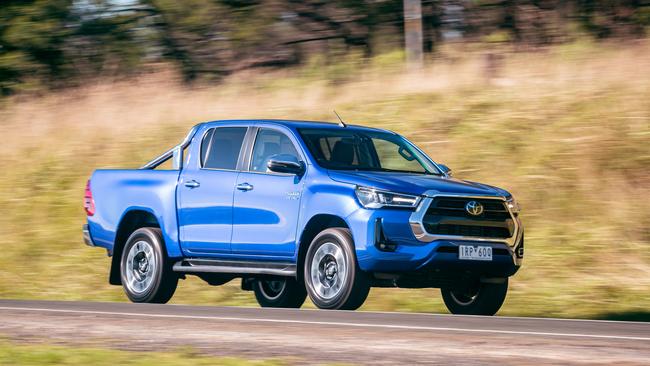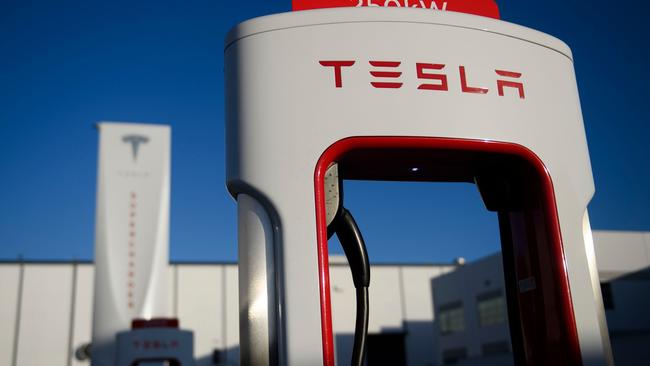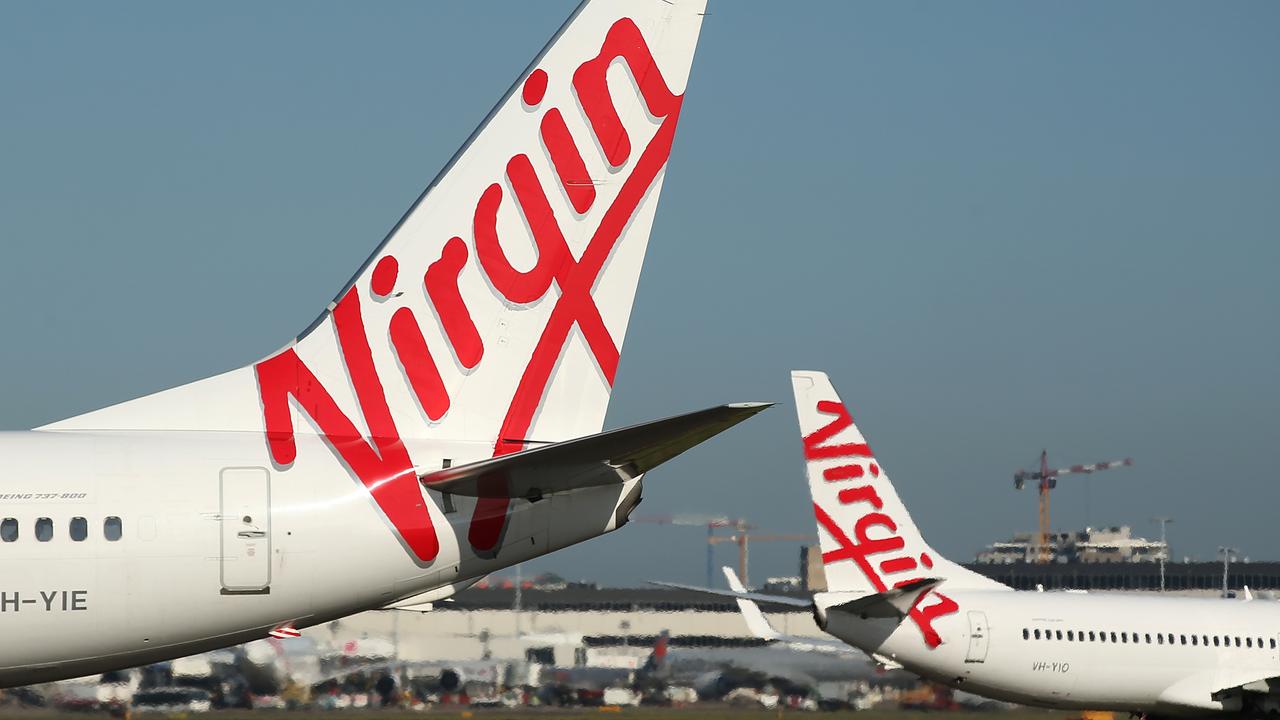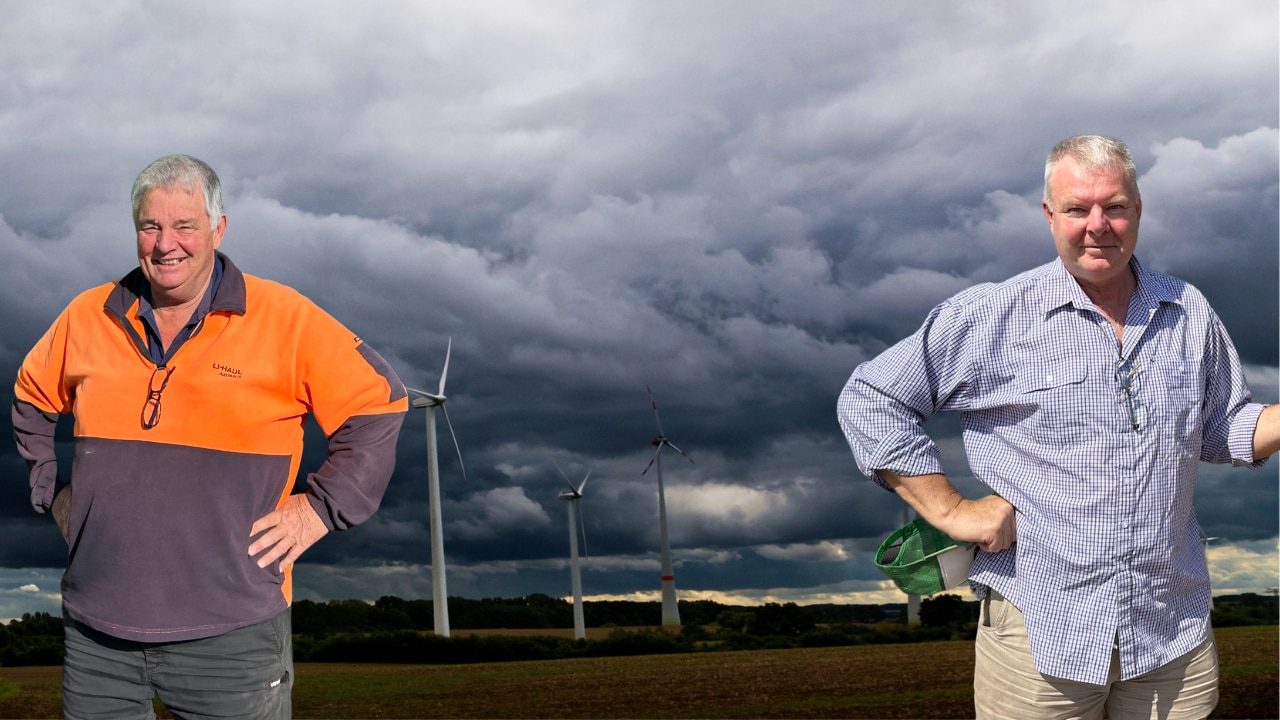Toyota HiLux still Australia’s No 1 while electric car uptake remains slow
Electric car sales are growing but still represent a small fraction the market, with Australians continuing to show a preference for SUVs and utes.

Business
Don't miss out on the headlines from Business. Followed categories will be added to My News.
New electric vehicle sales for the month of March increased 150 per cent compared to March 2020 – but still numbered just 411, or 0.4 per cent of total new cars sold – as Australia continued to lag behind other western countries in the uptake of clean-energy vehicles.
The figures come as broader new vehicle sale statistics for March from the Federal Chamber of Automotive Industries (FCAI) highlighted the strength of Australia’s economic recovery, with the number of new vehicles sold overall for the month growing 22.4 per cent on a year-on-year basis, to 100,005.
FCAI chief executive Tony Weber said that despite growing enthusiasm for a new ride, Australians were proving hesitant to take the plunge on an electric vehicle due to largely logistical concerns like keeping it charged.
There is strong EV growth, but off a very low base,” Mr Weber said.
“There is still a premium paid on EVs and there are issues around infrastructure and the like that need to be addressed.”
Mr Weber said he would like the government to support the adoption of lower emission vehicles generally through adopting the Australian automotive industry’s three per cent emissions reduction target by 2030 as policy.
“We need to have a holistic approach in this country,” Mr Weber said.
“And I think the best way to address this, is the way our policy has been set up – by setting a target and then giving manufacturers choice on how they achieve this goal be it through more fuel-efficient vehicles, through hybridisation of vehicles and through electric vehicles.
“Give the industry a target and the industry will give you the technology.”

Electric car maker Tesla does not report its local sales to the FCAI, but according to the Electric Vehicle Council, electric vehicles currently account for roughly 0.6 per cent of all new sales in Australia, compared to 2.5 to 5 per cent in other developed countries.
Mr Weber said he would welcome the adoption of Labor’s plan to exempt EVs from fringe benefit and import taxes to help increase electric vehicle uptake.
“Sometimes you need to provide incentives to get those technologies up and running,” he said.
Overall, Australians continued to show a preference for larger vehicles, with SUV and Utes representing eight out of every 10 vehicles sold.
The Toyota HiLux remained the most popular vehicle in the country by a long shot, shifting 5319 vehicles, while runner-up Ford Ranger sold 3983.
Toyota also took the mantle as the most popular overall brand, selling 21,319 new vehicles – almost twice the amount sold by Mazda, which took second place with 10,785 sales.
New vehicle sales lifted in all states and territories with the exception of the ACT.
The FCAI reported that in the 12 months to March new car sales totalled 947,255 – a nine-month high – but 7.8 per cent down on a year ago. And in the year to March, SUVs accounted for a record 68.8 per cent of combined SUV and passenger car sales.
Mr Weber said he is confident that sales figures would have been even stronger if it wasn’t for COVID-19 related production and shipping issues continuing to constrain the supply of new vehicles in Australia.
“It is possible that the result could have been even stronger if some brands had not been impacted by delivery constraints in global factory supply chains,” he said.
“You only need one factory to go out under a just in time delivery system and you are in trouble.
“It is our expectation that these delivery issues will continue to be resolved during the coming months.”
Originally published as Toyota HiLux still Australia’s No 1 while electric car uptake remains slow





